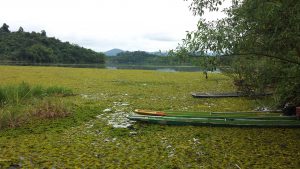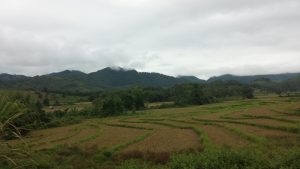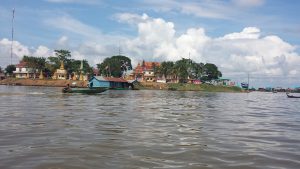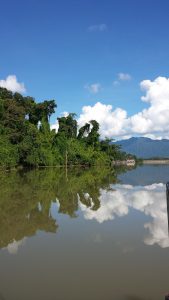
By Courtney Ridgel
One of the most frequent questions that we receive is, “What vaccinations do I need before I travel?” followed up with, “Do I need to worry about mosquitoes?”, so we put together a quick blog to help explain how to prepare for your travel-related health needs in Southeast Asia.
Few of our travelers experience illness outside of common colds, mild digestive reactions to the local food, or other regular small-scale illnesses, and our team strives to ensure that all of our guests are healthy and happy. We find that the best way to do this is to provide you with enough knowledge to prepare for your trip adequately in advance and make your own health-related decisions.
Please notify Journeys Within of any health concerns that you have before you travel, so that we can provide you with a wonderful trip and be prepared to assist you in case of emergencies. Please also notify your tour consultant of any allergies or food preferences, and let us know if you have special requirements such as if you need to limit walking or going up stairs, or if you need to have a cooler on hand at all times to carry insulin. This information helps us to plan and prepare the perfect trip for you and to prevent health-related issues from getting in the way of you enjoying your vacation.

General Healthcare:
Southeast Asia has many well-equipped hospitals and the facilities in most of the major cities are experienced in handling most problems experienced by tourists. In severe medical cases, these regional hospitals have the ability to air-lift patients to major hospitals in cities like Bangkok, where the facilities meet world-class standards. At times, such as when you are trekking, medical help will be a ways off, so take care. Don’t go if you are concerned about your health and let your guide know if you have any concerns.
Bring a good supply of any prescription drugs you will be taking and carry them on the plane with you in your hand luggage, to avoid losing them if your luggage is delayed or lost.
For those who rely on spectacles or contact lenses, it is a good idea to bring a spare pair of contact lenses and/or glasses in case the first pair gets lost. Also, during the hot season, dirt roads can be very dusty and contact lens wearers may choose to revert to glasses.
You may choose to bring a small emergency kit of medications to deal with those ‘just in case’ scenarios – unexpected colds, headaches, stomach troubles, or diarrhea. Discuss it with your doctor, and keep in mind that your immune and digestive systems may not be used to the naturally occurring bacteria in any new area that you travel to. If you do experience diarrhea, Imodium can sometimes help and the local clinics are generally aware of what works best in their area. Don‘t hesitate to get professional help if the problem persists!

Dealing with the Heat:
Southeast Asia, for much of the year, has a warmer (hot!) and more humid climate than most travelers from North America or Europe are used to. Please confirm with your doctor that you are fit enough to travel and participate in the activities we are arranging for you. Remember to drink lots of water — 2 to 3 quarts a day — to limit the problem of dehydration. Heat exhaustion and heat stroke can be a problem so drink lots of water and don’t overdo it, especially at the hottest time of the day. Give yourself time to acclimate to the heat. We also recommend wearing sunhats, sunscreen and sunglasses.

Inoculation Requirements & Mosquitoes:
Please check with your doctor, local health department, a travel doctor, or the (CDC) – Center for Disease Control and Prevention (Tel: 1-800-232-4636) to ensure you feel comfortable with the choices you make with regard to optional inoculations. We do recommend you are up to date on your Typhoid vaccine and most recent Tetanus Booster. You may also want to consider making sure that you are up to date on your Hepatitis vaccines. We find that many of our travelers have already had some or all of these inoculations.
There are few restrictions on travel to Southeast Asia but you may find that you need proof of yellow fever vaccination (particularly in Thailand) if you have recently traveled to a yellow fever infected area (sub-Sahara Africa and parts of South America).
The best defense against catching any and all mosquito-borne diseases is to try and prevent being bitten by mosquitoes at all. They are most active between sunset and sunrise. Use mosquito repellents containing DEET liberally; wear light colored long sleeved shirts and long pants in the evenings; use mosquito nets where provided; spray your room if you notice them inside; consider lighting a mosquito coil; and avoid wearing perfumes or aftershave. Most hotels and restaurants will have coils so don’t hesitate to ask for one to be lit and be put in your room or under your table if you are sitting outside. The time of year will also affect the number of mosquitoes out and about: Summer (peaking around July) tends to be both hot and wet in Southeast Asia, so mosquitos are most prevalent this time of year. The coolest season (normally November – January) tends to have fewer mosquitoes.
Malaria, along with other mosquito borne diseases, does exist in a few areas in Southeast Asia, but mostly is relegated far into the countryside and away from the main tourist destinations. Check with the CDC; there are several options of oral pills available to prevent Malaria from developing if you are bitten by an infected mosquito. Be advised, some of these medications can have very strong and severe side effects and this varies from person to person. We leave the decision whether to take any of these medications up to you and your medical professional. Some of our team choose to take them and many don’t. If you are concerned at any time that you might have Malaria it is critical that you seek expert medical advice at once. Again, we find precautionary measures to avoid being bitten to be the best defense against diseases of this type.
If you become ill on your return remember to tell your doctor that you have been traveling in Southeast Asia and that tropical and third world diseases should be considered a possibility and you need to be tested for them.


